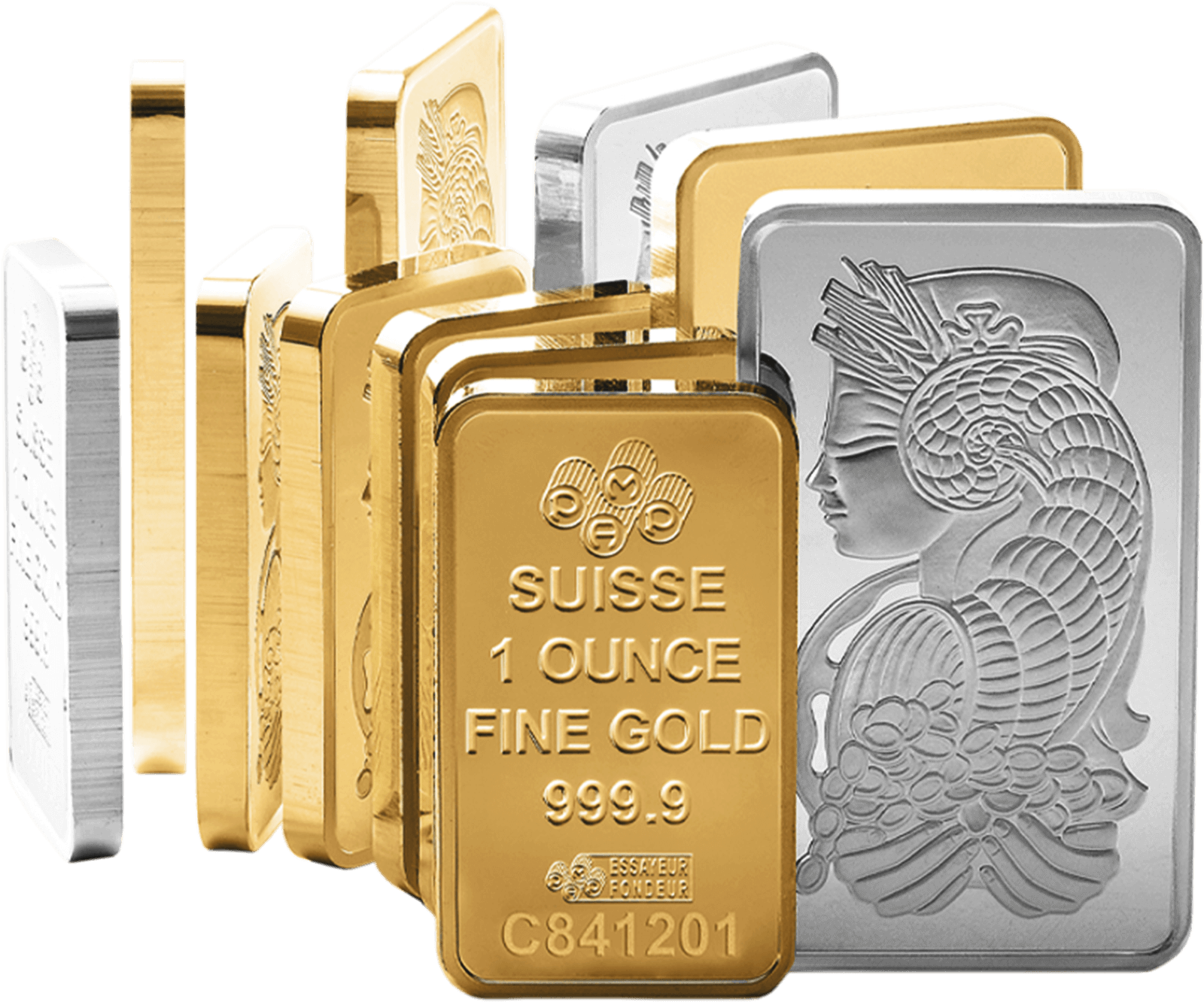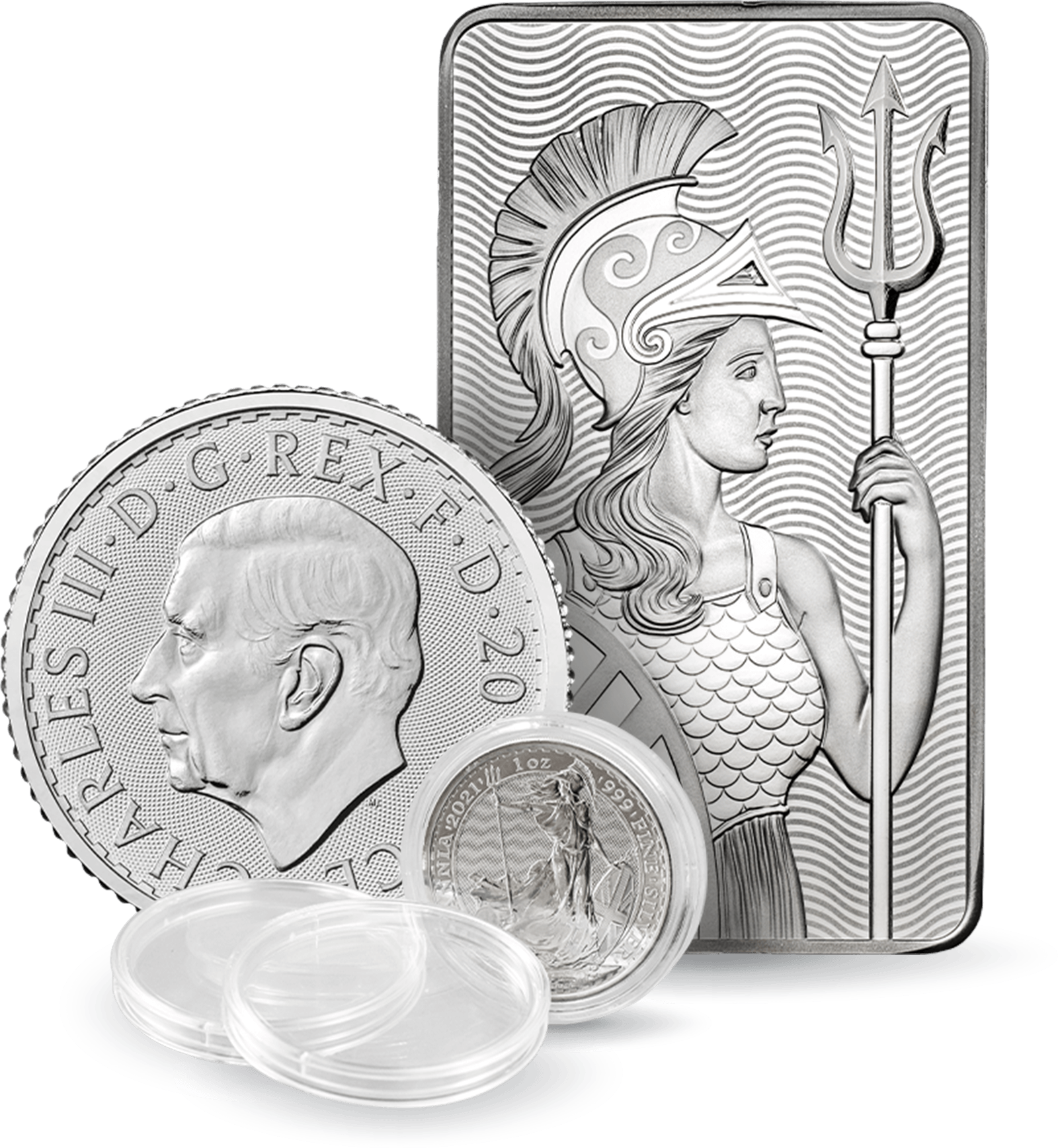Store of value and part of the technology of the future
Investments with a future
Discover the key to independence, financial stability and potentially higher returns
Portfolio diversification
In financial jargon, portfolio diversification means investing and saving in assets not exposed to the same conditions. The price of silver usually follows the price of gold, but because silver is also an industrial metal, its price can rise significantly more than the price of gold in times of economic growth, when demand from the manufacturing sector increases. So, you can add silver alongside stocks, bonds, real estate and gold.
A safeguard against inflation and uncertainty
Investment silver is one of those precious metals that enjoys safe-haven status during economic downturns, offering investors long-term security for their wealth free from the risk of rising inflation. In the 6,000 years that silver has accompanied humanity, it has never collapsed. Gold may be more stable, but silver has more growth opportunities and is subject to more significant price movements than gold.
A haven for your savings
When pursuing long-term goals and objectives, investment silver is a good choice. It also makes for a good intergenerational investment. The investment bars and coins will be in your own hands. You alone get to decide what to do with your property. Will you use them as a gift or a memento of a significant family event? Will you hold on to them as a reserve for your pension pot? Another advantage of physical assets nowadays is keeping your savings out of the reach of cyberattacks.
A versatile metal
The vast majority of silver mined each year is used in industry. It can be found in computers, televisions, mobile phones, microwave ovens, fridges, solar panels, catalytic converters, disinfectants, chemical reactors and many other appliances. Most of the silver used in this way is irretrievably lost and can never be brought back to the market because it is difficult and not that profitable to recycle silver.
Silver is a precious commodity
The supply of silver depends on mining. However, unlike gold, two-thirds of the silver extracted is obtained as a by-product from the mining of other metals (zinc, lead, nickel and copper). A decline in the mining of these metals has led to the closure of a large number of mines, resulting in a decrease in silver production too. It can take ten or more years to open new mines, and finding sites with adequate concentrations of this metal is hard.
Silver stocks are disappearing
Central banks hold large stocks of investment gold in their vaults. However, when it comes to investment silver – which is also a monetary metal – there are no reserves. Since the 1980s, the long-term shortage of silver caused by insufficient mining has been covered by state reserves and investors’ stocks.

A cheaper alternative to gold
Consider an ounce of gold and an ounce of silver. Silver is about 85 times cheaper than gold. Many analysts believe its price is seriously undervalued and expect it to rise, mainly because of the silver deficit and growing demand.
Silver as an investment


What not to forget
An affordable investment
Selling price of 1 g of investment silver over time
Discover what it means to be secure with IBIS InGold
More than 80,000 customers
A direct connection to the PAMP refinery and The Royal Mint
Products and services sold throughout Europe
Savings schemes and one-off purchases
Customer support and service
First owner
You will be the first and only owner of the investment bars or coins you purchase.
Buyback guarantee
We make a buyback guarantee to our customers directly in the contract. We will buy back the items we have sold to you.
Premium quality
We only supply bars and coins of the highest quality and fineness from the most prestigious refineries and mints.
Free storage
We keep bars and coins in maximum-security safes at no extra charge for the duration of your savings period.
Questions and answers
What is investment silver?
Investment silver is a special silver used as an investment instrument, much like securities, mutual funds, etc. It mainly takes the form of silver coins and bars (ingots), which are not bought for collecting reasons, but as an investment (i.e. a place to park paper money).
Its most important characteristics are its fineness and authorised weight. The conditions under which investment metals are defined may be regulated differently from one country to another. We only offer bars and coins from world-famous refineries and mints that have been accredited by the LBMA. These bars and coins are of the highest purity (999.0 – 999.9) and boast precise quality.
How to purchase and what to watch out for?
There are many ways to purchase precious metals, but not all are sound. A low price may be tempting, but it can be very expensive in the end.
Investment bars and coins should only be purchased from verified and reliable partners with a track record and market credentials. It is crucial to avoid purchasing from unknown persons, dubious sources or purely internet companies – which often only deal through their online shops or auctions and, once you make your purchase, you find that the “seller” or the company itself has vanished.
Do not buy investment precious metals of unknown origin. A reputable dealer will guarantee that you are the first owner of the bar and will not sell on bars that have been bought back. Trustworthy dealers source their bars from an official exclusive supplier or refinery. You won’t go wrong by choosing from among the world’s most sought-after and LBMA-certified manufacturers. A manufacturer’s popularity guarantees quality and, in particular, prompt buyback. The seller must also guarantee a selected manufacturer’s supply of bars and coins.
It should be a matter of course to also have a buyback guarantee from the seller. It’s best to avoid dealers who do not publish or adhere to current buyback prices. Likewise, all the information you need to make an informed investment decision should be available to you. This includes pre-contractual information, a draft contract and their fee and service price list. Pay particular attention to the penalties and fines charged for breach of contract. Considering that investment in precious metals is meant to provide freedom and independence, you should not feel constrained by the dealer’s terms and conditions.
Because investments in precious metals are of a long-term nature, it is vital to choose a proven and safe partner.
Is VAT payable on silver?
Silver, like other metals, is subject to 21% VAT in the Czech Republic. The only exception permitted by law is for investment gold meeting special conditions. The prices of investment silver bars and coins in the IBIS InGold shop include value-added tax and are, therefore, final.
To explain the issue in simple terms, we must start by distinguishing between two different types of investors (customers). There are those who are liable to account for VAT (VAT payers) and those who aren’t (non-payers). The tax scheme for each of these two groups is different.
VAT payers
This group includes sole traders, other individuals with a business and legal entities (private and public limited companies and others) who are registered for value-added tax. When VAT payers like these buy investment silver, they pay VAT but get to deduct this tax in the next tax period.
VAT payers who wish to sell their silver offer it at a price inclusive of VAT. If the counterparty is also a VAT payer, the VAT will be deducted and the tax will not be forfeited. If the sale is to a non-taxpayer, the non-taxpayer cannot deduct the tax; however, this does not mean an increase over the current market price. For those subject to VAT, investing or speculating in silver is essentially exempt from VAT and adheres to the same conditions applicable to investment gold.
The situation is the same if a foreign VAT payer is from another EU Member State (e.g. Slovakia). They simply receive the goods directly without VAT and do not have to wait until the end of the tax period for the tax to be deducted. Instead, these customers settle both input and output VAT in their tax returns.
VAT non-payers
Sole traders who are not registered for VAT and individuals who are not running their own business belong to the group of VAT non-payers. These customers must purchase silver at prices inclusive of VAT and cannot deduct this tax. This means that, compared to VAT payers, they essentially pay a 21 % higher purchase price. Even so, the vast majority of investment silver in our region is in the hands of retail investors. In other words, it is common for investors to hold silver at VAT-inclusive prices.
VAT non-payer investors who wish to sell their silver after it has appreciated will not have to add any VAT to the price, regardless of whether they are selling to a VAT payer or VAT non-payer.
